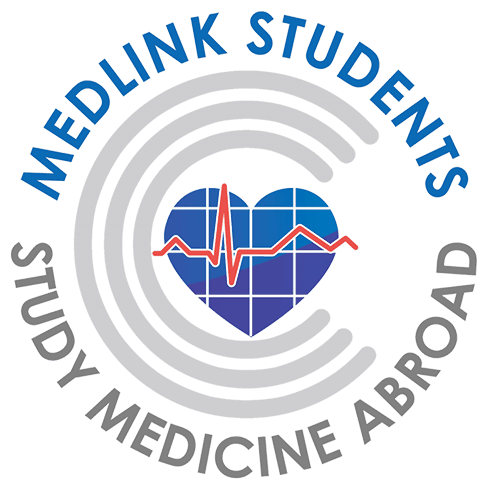4 Tips on Developing Stronger Studying Habits

You’re onto a new path - conquering the world of medicine. That is a huge accomplishment, and you should be proud of yourself. However, medical studies abroad require massive dedication, and it is important that you develop strong studying habits.
Below, you will find some useful tips on the most efficient ways to study in medical school and the ways to best retain all of the material.
Develop stronger studying habits for medical students
Ok, so you’ve probably heard that it takes 21 days to develop a habit. While it’s true that you need to do something consistently over a certain amount of days in order for it to become a habit, there really are no magical numbers.
The common opinion is that it takes up to 2 months before a new behaviour becomes mechanical. When it comes to studying as a medical student, it takes even longer.
Typically, during the first year of medical school, most students are tirelessly studying day and night, and most of them struggle to find a systematic approach to learning medical subjects.
Every subject is different. Some require more studying at home, while in others, the lectures have a much bigger impact. Moreover, with some, simply reading the textbook is sufficient, while others have to take a whole bunch of notes.
The advice here would be that you ought to have a UNIQUE approach towards every subject and type of material.
Explore the tips and adopt the ones you find right to help you develop a studying habit. Simply because if you want to study medicine, you need to learn how to do it properly and efficiently.
Table of Contents
- 1 Develop stronger studying habits for medical students
- 2 Tip #1 - Establish A Studying Corner In Your Home
- 3 Tip #2 - Study Every Day. Consistency Is Key.
- 4 Tip # 3 - Eliminate Distractions
- 5 Tip # 4 - Study In The Same Hours Each Day
- 6 BONUS Tip # 1- Form or join a study group.
- 7 BONUS Tip # 2- Take care of yourself
Tip #1 - Establish A Studying Corner In Your Home
Some people overlook this, but it’s concluded that the place you study should be used ONLY for studying. Make sure you have everything at hand (pens, pencils, highlighters). It’s also worth buying a studying lamp not only for better lighting. When you sit in your studying corner and turn on the lamp when you see your books, pens, and everything, your mind starts thinking only of studying and nothing else. This is psychology right here. You need to trick your brain and put it in the right mood.
Having a designated place to study can greatly impact your overall productivity. Studying in the kitchen, on the sofa, or in bed is not a great idea. When you study in bed, you get sleepy because your brain is a master at making associations. This is why you need proper associations and shouldn’t mix things up.
If you utilise this trick properly, you’ll get into a studying mood with the click of your desk lamp that was mentioned earlier.


It’s fine if you don’t have room in your home to create such a space. You might as well go to the library. Why? Because your brain associates it with studying, simple as that.
To sum it up, creating a productive learning environment is a key component of studying in medical school, perhaps just as important as the study methods themselves.
Tip #2 - Study Every Day. Consistency Is Key.
Now, this is obvious, isn't it? But do you actually do it?
Make a studying plan. Review the material daily. Write the important parts. Put your knowledge to the test.
Set up a study schedule on how many hours you have to spend a day in order to be prepared for all of the subjects on the next day. Use the weekends to catch up with the study material or to find some additional information on the topics in the form of videos and articles to genuinely provoke interest in the matter.
Taking notes and writing everything important down is as essential as reviewing materials you’ve already been through. No one expects you to remember all of it at once, so stay consistent.
Test yourself to double-check what you’ve learned, and make it a habit. You can even do it as a game with another medical student, and it's guaranteed that it will be helpful for both of you.
Tip # 3 - Eliminate Distractions
As banal as this may seem, please, put your cell phone away while studying. There is nothing more distracting than having to answer a text, call or any sort of social media notification during studying. It is scientifically proven that a single interruption, for example, answering a phone call or even answering the doorbell, costs you 15 minutes!
We all know people who study while the TV is turned on or with other people talking around them. And we all know that they ALWAYS complain that they can’t remember anything and they have to read it a hundred times.
This is probably the most important tip on the list. Make sure you turn off your phone’s sound when you start studying, or you might leave it in the other room.
Tip # 4 - Study In The Same Hours Each Day
Now, this one is very interesting and applies not only to study. It can be effective for working out too. Apparently, when you practice the same activity for the same hours every day, your brain gets used to doing it, and if the activity is skipped, studying or sports, you’re left with the feeling something is missing.
If you successfully implement these 4 tips, you will quickly develop effective study habits. If you manage to do this in the first 2 years of medical school, it will be MUCH easier for you during the clinical years, where the workload but be bigger, and you will actually have less time for studying.


BONUS Tip # 1- Form or join a study group.
Study groups are a great option for medical students who learn well when collaborating with fellow students. Even more so, this method of learning is particularly helpful for reviewing clinical scenarios and practice questions.
When forming a study group of your own, it is absolutely essential to keep it to a maximum of four or five students in order to minimise distraction. Find international students, such as yourself, who have similar goals to yours and share the study materials equally. Forming or joining a group for studying will be beneficial for all of you.
Furthermore, many of the medical universities in Europe have already formed groups and can assist you in finding the right one for you.
BONUS Tip # 2- Take care of yourself
Developing good study habits are important, yet, make sure you take some time for yourself. Include regularly timed breaks to allow yourself to recharge. Go for walk, meet friends, relax with a good book or enjoy a session at the gym. It is up to you.
You’ve decided to help others by choosing the medical profession, yet, to ace your medical studies abroad, you will need to take care of yourself first.
Make sure you start using those tactics right away, and in less than 2 weeks, you will start seeing the results!
If you're still looking to find a place to study medicine, check our website!
Leave a Reply

About Medlink Students
Leading international recruitment company for medical students in Europe. British Council certified. 10+ years of experience and more than 10,000 students advised.








